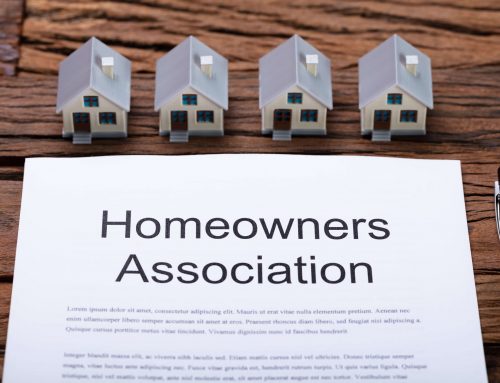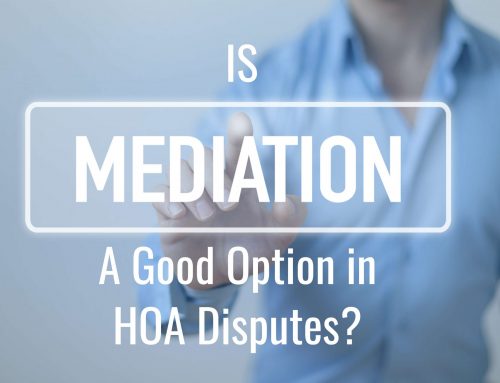Home Owner/Condo Associations and the Sex Offender
September 1, 2020

Before 1994, only a few states required convicted sex offenders to register their addresses with local law enforcement, as there was no enacted federal mandate.[1] However, that all began to change when the 1994 Jacob Wetterling Crimes Against Children and Sexually Violent Offender Act, or “Jacob’s Law,” passed and encouraged states to create baseline standards for registering sex offenders.[2] Eleven-year-old Jacob Wetterling was kidnapped in 1996 while riding his bike to a convenience store in Minnesota with his younger brother and best friend.[3] A man, armed and masked, stopped the three children and ordered Jacob to come with him.[4] The kidnapping, which remained unsolved for over 27 years, began a forceful movement towards informing the public about the dangerous offenders possibly living close to home.[5]Congress later passed Megan’s Law, also named after a child victim, which amended Jacob’s Law and explicitly required states to start publicly disclosing information about registered offenders.[6] Kentucky shortly followed suit.
Kentucky’s Sex Offender Registration Act (“SORA”) is codified in Kentucky Revised Statutes (KRS) 17.500 – 17.580. SORA requires that the State Police maintain and update a public website containing information about adults who have committed sex crimes or crimes against minors.[7] The registry can be located at http://kspsor.state.ky.us. However, it is essential to point out that not all criminal offenders are required to register. Only offenders convicted of statutorily covered crimes who fit the following criteria:
- Convicted after July 15, 1994 of a sex crime
- Incarcerated or sentenced after July 15, 1998 for a sex crime (even if convicted prior to July 16, 1994)
- Convicted or released from incarceration (even if convicted prior to July 16, 1994) after April 11, 2000 for a criminal offense against a victim who is a minor;
- Required to register in another jurisdiction (state, territory, federal) or has committed an offense under the laws of another state or territory that would require registration if committed in Kentucky; or
- Convicted of a sex crime or criminal offense against a victim who is a minor under federal law, military law or the laws of another state, territory or other country; or
- Committed or designated as a sexually violent predator under the laws of another state, territory, other country, or under federal law
KRS 17.545 prohibits registered sex offenders from residing within one thousand (1,000) feet of any school, publicly owned or leased playground, or licensed daycare facility.[8] If found in violation of this statute, an individual is guilty of a Class A misdemeanor for a first offense or Class D felony for a later offense.[9] Additionally, any address change requires reporting to the proper legal authorities.[10]
The Community Association Duties in Kentucky
Not surprisingly, Homeowners Associations and Condominium Associations (“Associations”) are often concerned when discovering that there is a registered criminal offender in their midst. But what rights do they have, and what duties do they owe to their residents when this type of issue comes up?
Associations should not ban criminal offenders in their governing documents, nor should they attempt to evict these individuals, as this would open them up to the genuine possibility of future lawsuits. For example, a couple in Texas, the Whipples, sued their Association in 2013 when it issued a new rule prohibiting registered sex offenders from any condo property within 2,000 feet of a place where children congregate, effectively ousting Mr. Whipple from his home.[11] Mr. Whipple had been convicted of a sexual offense twenty years prior, and his parole had since concluded.[12] The couple alleged that the ban violated the 14th Amendment’s right to due process, the Texas Deceptive Trade Practice Act, and the right to alienate property.[13] It is clear from the Whipples’ case that suits based on constitutional violations against Associations for trying to prohibit offenders from their grounds is very plausible. Furthermore, it certainly would be financially draining.
Associations are controlled by their governing documents, whether that be their Bylaws, Declaration, Master Deed, or Articles of Incorporation, so incorporating provisions regarding sexual offenders would subject the Association to additional liabilities. If an Association were to ban registered offenders explicitly in their governing document, residents might then assume that the Association is monitoring the grounds for these types of offenders. Residents might also believe that the Association is implementing all of the necessary safety procedures. If a crime were later to occur on the premises, then the Association could be on the hook for some of the blame.
Further, Associations in Kentucky, like many other states, are subject to a fair housing act. Lastly, notifying residents of an identified offender living on the premises is likely not a good idea. This behavior by an Association can be seen as “harassment,” and grant the individual more ammunition to file suit.
An Association could include the sex offender database on a list of safety resources for their residents.[14] As was previously discussed, Kentucky is federally mandated to keep a registered sex offender registry available to the public and has enacted state legislation implementing that requirement.[15] Many citizens may not be aware of this fact, nor would they know where to find it. It would be beneficial to disburse the link to the Kentucky State Police Sex Offender Registry, along with other information regarding local fire, hospital, and police. The safety information could be included in the Association’s periodic newsletter or a flyer distributed to tenants’ mailboxes. General notice by the government of the whereabouts of convicted offenders is clearly beneficial to the public, and it was the underlying rationale behind significant legislation like Jacob’s Law and Megan’s Law.[16] Associations, if done properly and without bias, can do their part by getting the word out to their residents that this type of information is publicly accessible.
[1] Leslie A. Hagan & John Dossett, Consultation: Adam Walsh Child Protection & Safety Act of 2006, U.S. Department of Justice, Office of Justice Programs, SMART Office, https://www.justice.gov/archive/tribal/docs/fv_tjs/session_3/session3_presentations/Adam_Walsh.pdf (last visited Aug. 28, 2020).
[2] Legislative History of Federal Sex Offender Registration and Notification, SMART, Office of Sex Offender Sentencing, Monitoring, Apprehending, Registering, and Tracking, https://smart.ojp.gov/sorna-archived/legislative-history-federal-sex-offender-registration-and-notification (March 24, 2020).
[3] Cleve R. Wootson Jr., Danny Heinrich admits he abducted and killed Jacob Wetterling, ending a 27-year-old mystery, The Washington Post, https://www.washingtonpost.com/news/true-crime/wp/2016/09/06/danny-heinrich-admits-he-abducted-and-killed-jacob-wetterling-ending-a-27-year-old-mystery/(Sep. 6, 2016).
[4] Id.
[5] Id.
[6] Legislative History of Federal Sex Offender Registration and Notification, supra note 2.
[7] KRS 17.580.
[8] KRS 17.545.
[9] KRS 17.580(5)(a-b).
[10] KRS 17.510(10)(a).
[11] Debra Cassens Weiss, HOA ban on sex offenders leads to lawsuit, ABAJOURNAL, https://www.abajournal.com/news/article/hoa_ban_on_sex_offenders_leads_to_lawsuit (September 27, 2013).
[12] Id.
[13] Id.
[14] A Sex Offender Has Moved Into Your HOA… What Now?, HOAleader.com, The Practical Guide to Homeowner Association Management, https://www.hoaleader.com/public/242.cfm (March 2009).
[15] KRS 17.580
[16] Legislative History of Federal Sex Offender Registration and Notification, supra note 2.




Leave A Comment